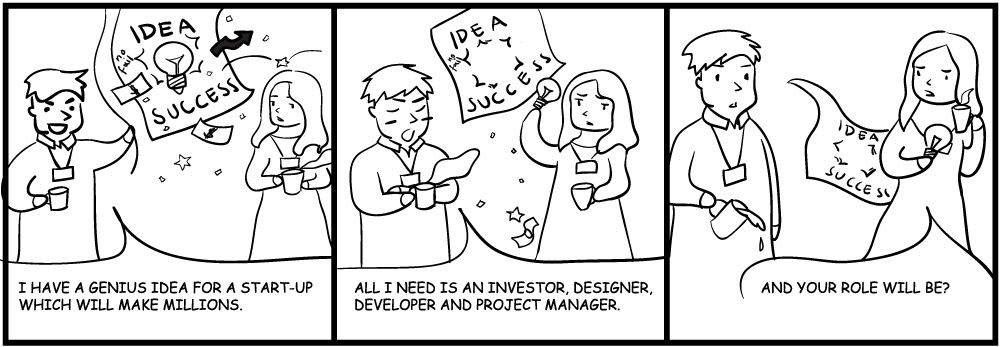You’ve heard it many, many times before. A client (or potential client) approaches you with an “amazing” idea but they have limited resources. They can’t pay for your expertise but are happy to offer a profit share arrangement. You’ll become a multi-millionaire! You’ll praise the day they contacted you! When can you start?!
 Artwork by SitePoint / Natalia Balska
Artwork by SitePoint / Natalia Balska
Just Say “No”
Clients should have no shortage of investment offers if their idea is truly outstanding. What they’re really saying is:
We don’t know whether this project is viable. It could be huge. Or it could make nothing. Are you willing to take on all the risk even though we’re not?
The client is asking you to invest in their business. Unfortunately, you’re unlikely to be an expert in their industry. The project could be ground-breaking or terrible but you have little way of knowing. If they were asking for money, you’d expect a comprehensive business plan with projections, marketing details, ongoing costs and potential profits. Those are rarely forthcoming.
Profit-sharing clients rarely equate your time with money which is inherently patronizing. The old adage that “time is money” is untrue; time is worth more than money. It’s not always easy and may require some luck but you can always make more money. You can never make more time. The average working life is a mere 75,000 hours. It’ll take you 10,000 hours to become a proficient developer and perhaps another 10,000 to keep on top-form. Even if you offset some of that with schooling, you’re left with 60,000 hours to earn a living.
Gambling on a client’s idea has other financial impacts:
- It’s difficult to earn money while you’re working for them.
- The client will be more demanding than others because they have no budgetary or time constraints.
- The majority of new businesses fail. Those without a plan fare worse.
- You almost certainly have better ideas in industries you know well. You will understand how to start small and evolve a minimum viable product in reaction to user demand — why shouldn’t you work on that instead?
Until you invest, the client has no business. However, your contribution has no perceivable value because the client won’t pay for any of your work. You’re effort is free.
Ignore the vast majority of approaches — especially those made by people who don’t know you yet are willing to share their business with a stranger. Don’t waste any time responding to their unworkable idea to combine Facebook and eBay. If they keep hassling or they’re an existing client with a dumb idea, state you can only consider an investment once you’ve received their five year business plan. It’ll never arrive.
Continue reading %How to Respond to Profit Share Offers%
Source: SitePoint
